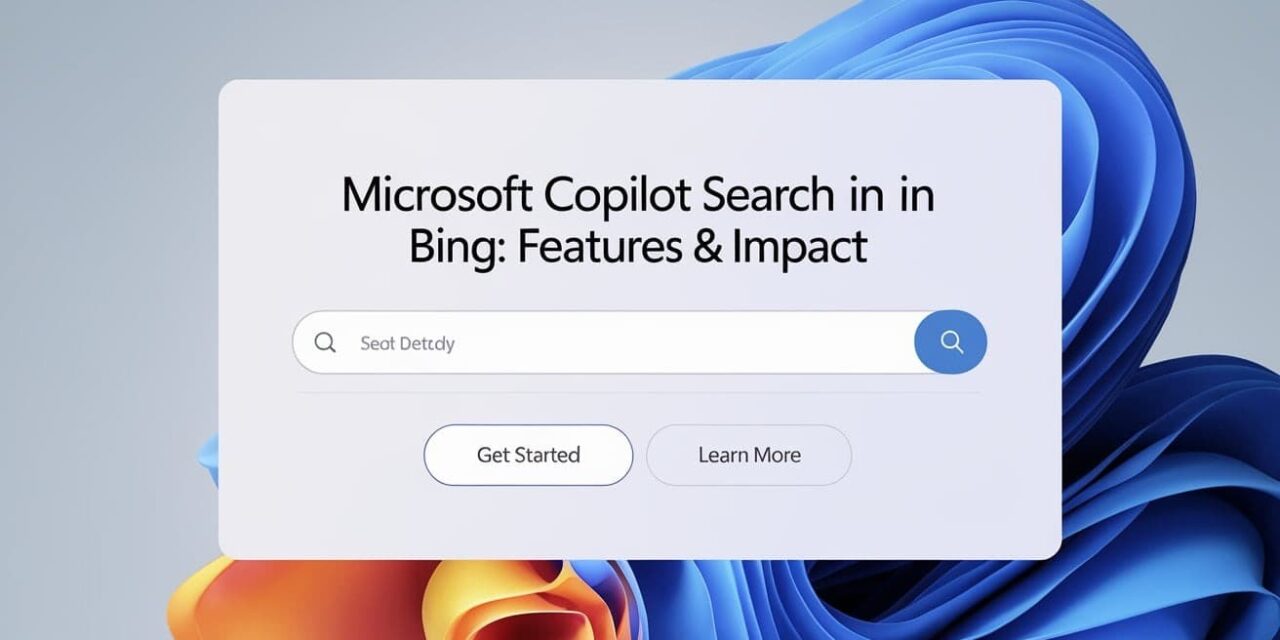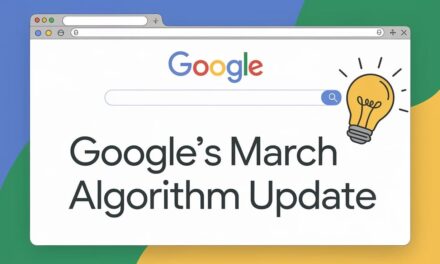Microsoft has unveiled its highly anticipated Copilot Search in Bing, marking a significant shift in how users interact with search engines. This launch aligns with Microsoft’s growing focus on artificial intelligence (AI) integration across its suite of products. With Copilot, Bing aims to not just provide search results but to offer an intelligent, user-centric search experience. Let’s explore the key features of Copilot Search and its potential implications for users, digital marketers, and SEO professionals alike.
Table of Contents
- Overview of Microsoft Copilot Search
- Key Features and Functionality
- Implications for Digital Marketers and SEO
- Availability and Access
- Conclusion
Overview of Microsoft Copilot Search
The Copilot Search is designed to reimagine the traditional search process, incorporating AI-driven conversational search results. Powered by Microsoft’s integration with OpenAI, Copilot aims to provide a smarter, more intuitive search experience that understands and anticipates users’ needs. Unlike conventional search engines that primarily rely on keywords, Copilot focuses on delivering highly relevant results by understanding the context of users’ queries.
At its core, Microsoft Copilot Search is a conversational AI that interprets search queries more naturally and humanely. This change comes at a time when users increasingly demand answers that are more specific, context-aware, and seamlessly integrated into their daily lives.
Key Features and Functionality
Microsoft Copilot Search offers several transformative features that elevate the search process:
1. Natural Language Understanding
A hallmark of Copilot is its ability to process natural language. Unlike traditional search engines that primarily focus on matching keywords, Copilot’s AI analyzes the context of the query. Users can ask questions conversationally, and Bing will understand the intent behind the query, offering more accurate and relevant answers.
For instance, you can ask, “How can I improve my site’s SEO ranking for mobile?” and Copilot will provide a tailored response based on your exact needs rather than a generic list of links.
2. Contextual and Personalized Search Results
With Copilot, the focus shifts to context rather than just keywords. This feature ensures that search results are more relevant to the user’s current needs. Copilot looks at the user’s past search history and integrates personalized data to refine its search answers.
For example, if you’ve been researching digital marketing, Copilot might prioritize results related to that topic when you ask questions about SEO or content marketing, giving you a more customized search experience.
3. Summarized Content at a Glance
Instead of sifting through multiple search results, Copilot can summarize the key points of lengthy articles and reports directly in the search results. This feature is perfect for professionals, students, and researchers who need to digest information quickly without diving into every single result.
4. Visual and Rich Search Results
Copilot also leverages rich media, such as images, videos, and interactive content, to complement search results. For example, if you search for a product, Copilot could pull up product reviews, comparison charts, and tutorial videos, all in one place. This is especially beneficial for e-commerce and educational content.
Implications for Digital Marketers and SEO

As with any significant change in search engine technology, Microsoft Copilot Search brings both challenges and opportunities for digital marketers and SEO professionals. Here’s how it could shape the future of SEO:
1. Shifting SEO Strategy Toward Intent-Based Optimization
With Copilot, the focus is no longer solely on keyword optimization but on the intent behind the search. For digital marketers, this means revising SEO strategies to align more with conversational, long-tail queries and content that directly answers users’ questions.
Marketers will need to optimize content for more specific user intent, not just broad search terms. This will require deeper research into user queries and the types of questions your target audience is asking.
2. Content Strategy: Focus on Conversational Queries
One of the biggest changes will be the need to focus on conversational content. To optimize for Copilot, businesses will need to develop content that aligns with how users naturally ask questions. Traditional keyword-based content will still be important, but writing in a more natural, user-friendly way will take precedence.
Consider using FAQs, long-form content that answers multiple variations of a question, and structured data to help Copilot pull the most relevant information.
3. AI Integration and Automation in SEO Tools
The rise of AI-powered search signals a growing importance of AI tools in SEO. Marketers can expect to see more sophisticated tools powered by AI, such as content creation assistants, automated optimization recommendations, and real-time data analysis.
Automation will become even more crucial for handling larger SEO campaigns, allowing digital marketers to scale their efforts without compromising on quality. AI-powered platforms can help identify high-value keywords, analyze content performance, and suggest improvements for Copilot optimization.
4. Importance of Featured Snippets and Direct Answers
As Copilot integrates with Bing’s search algorithm, the focus will shift to featured snippets and direct answers. Businesses will need to focus on structuring their content to directly address common queries in a concise and informative way. This will increase the likelihood of being selected for the direct answer box in search results.
5. Voice Search and Conversational Queries
With Copilot’s conversational AI, voice search optimization will become even more important. As users continue to interact with voice assistants, such as Siri or Alexa, digital marketers will need to optimize content for natural language queries.
Optimizing for long-tail queries, creating voice-friendly content, and ensuring that your website is mobile-optimized will all play a role in staying competitive in the new search ecosystem.
Availability and Access
Currently, Microsoft Copilot Search is gradually being rolled out to users, with initial availability for Microsoft Bing users in select regions. Microsoft plans to expand Copilot’s availability in the coming months as they refine the AI’s capabilities. Users with a Microsoft account will receive the benefit of a more personalized search experience with Copilot integrated into their Bing platform.
For digital marketers and businesses, it is crucial to adapt to these changes quickly to maintain visibility and engagement on Bing. Ensuring that your content is optimized for Copilot, particularly in terms of conversational search and intent, will be a key factor in future SEO success.
Conclusion
Microsoft’s Copilot Search is set to revolutionize the way users interact with Bing, bringing AI-driven, personalized, and contextually relevant search results. For digital marketers and SEO professionals, this marks the beginning of a new era where understanding user intent and delivering highly relevant content will be more important than ever.
The move towards conversational search, personalization, and AI-driven results opens up exciting possibilities but also demands that marketers adapt to stay ahead of the competition. Copilot Search is a clear indicator that AI will continue to play an increasingly important role in shaping the future of search engines.
Want to stay ahead with AI-driven SEO insights and stay updated with the latest trends? Subscribe for daily search insights at bizaen.com to improve your SEO strategy!










